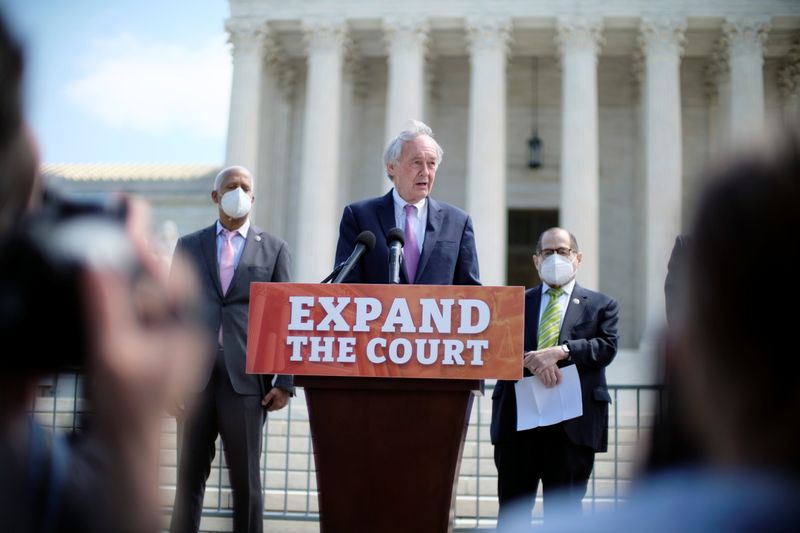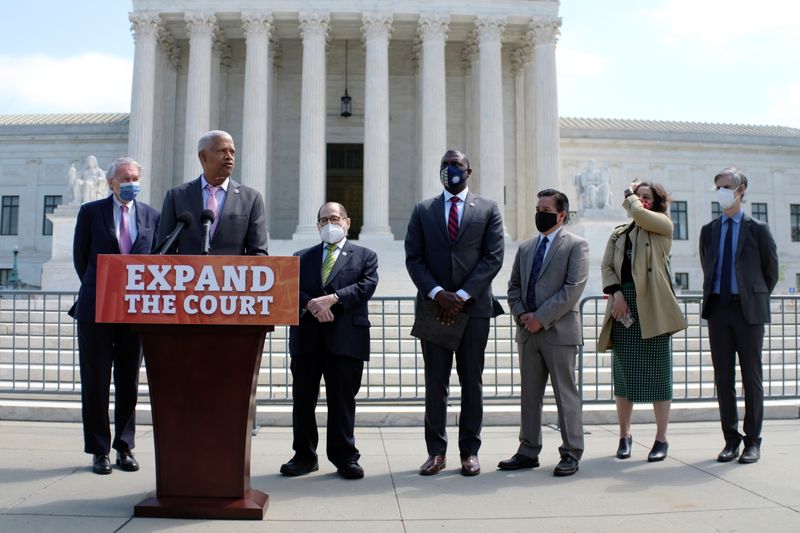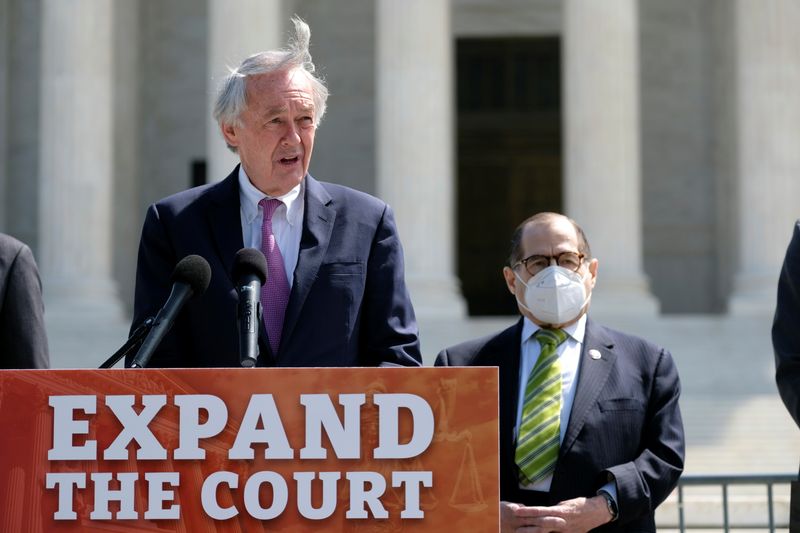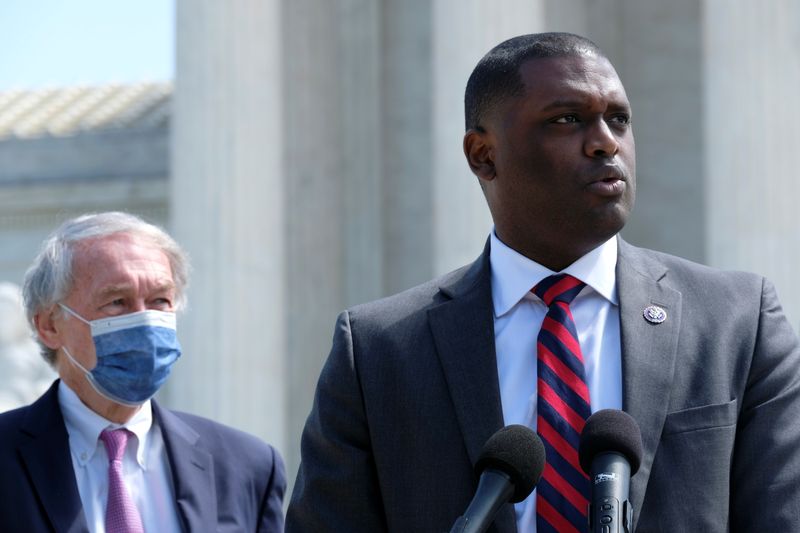WASHINGTON (Reuters) -A group of liberal Democratic lawmakers on Thursday proposed expanding the U.S. Supreme Court by four justices, aiming to end its conservative majority, but the plan drew an unenthusiastic response from the White House and top Democrats and was denounced by Republicans.
Senator Ed Markey and House of Representatives members Jerrold Nadler, Hank Johnson and Mondaire Jones introduced legislation in both chambers that would expand the number of justices to 13 from the current nine.
Markey said that Republicans had politicized the court, undermining its legitimacy, and the measure would “restore balance.” Republican former President Donald Trump was able to appoint three justices during his four years in office, giving the court a 6-3 conservative majority.
“Our democracy is in jeopardy today because the Supreme Court’s standing is sorely damaged. And the way we repair it is straightforward,” Markey said at a news conference in front of the court.
President Joe Biden, a Democrat, last Friday established a bipartisan commission to study potential Supreme Court changes including expansion or imposing term limits on the justices instead of the current lifetime appointments.
The number of Supreme Court justices has remained at nine since 1869. Congress has the power to change the number and did so several times before that. Democrats hold slim majorities in the House and Senate. The Senate is divided 50-50, with Vice President Kamala Harris casting a tie-breaking vote. Most legislation needs 60 votes to advance in the Senate.
Expanding the court, an idea popular among some liberals and activists on the left, has not drawn broad-based support, with some Democratic leaders expressing uncertainty and Republicans firmly opposed to what is sometimes called “court packing.”
House Speaker Nancy Pelosi expressed reservations, saying she favors Biden’s proposal to study the issue.
“It’s an idea that should be considered. And I think the president’s taking the right approach to have a commission to study such a thing,” Pelosi said, adding she has no plans to bring the new bill to a floor vote.
Senate Judiciary Committee Chairman Dick Durbin, a Democrat, said he also wants to wait for the commission’s report.
White House Press Secretary Jen Psaki said of the legislation: “The president believes in freedom of speech and that members can come forward and share their points of views on range of issues, including the future of the court. He has his own view.”
Senate Republican leader Mitch McConnell denounced the legislation as a vehicle for Democrats to “pack the court, destroy its legitimacy, and guarantee the rulings that liberals want.”
Some liberal activists have said all options including expansion must be considered to counter an entrenched conservative majority that could threaten abortion rights, civil rights, gun control and access to healthcare.
Democrats accused Republicans of “stealing” a Supreme Court seat in 2016 when the Senate, then controlled by Republicans, refused to consider Democratic President Barack Obama’s election-year nomination to fill a vacancy left by the death of conservative Justice Antonin Scalia. Trump in 2017 was able to fill the vacancy with a conservative jurist.
Democrats accused Republicans of hypocrisy last year when the Senate quickly confirmed Trump’s appointment of conservative Justice Amy Coney Barrett a week before the election after the death of liberal Justice Ruth Bader Ginsburg.
Imposing term limits on the justices would likely require a constitutional amendment, though some scholars have proposed ways to accomplish it by statute.
(Reporting by Andrew Chung in New York and David Morgan in Washington, additional reporting by Richard Cowan, Susan Cornwell and Jan Wolfe; Editing by Scott Malone and Will Dunham)




























